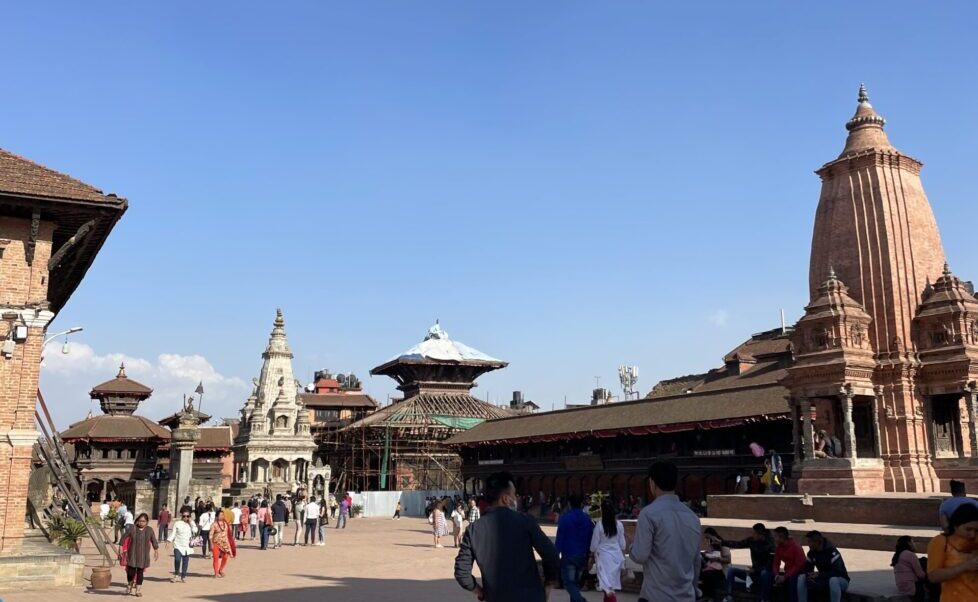In Nepal, the implementation of social welfare and development programs is guided by the Social Welfare Act and Rules. These legislative measures establish the necessary framework for organizations to effectively carry out projects aimed at enhancing the quality of life for individuals and communities. Adhering to the provisions outlined in these regulations is crucial for ensuring transparency, accountability, and efficiency in addressing social challenges and fostering sustainable development in Nepal. Compliance with these laws is fundamental for upholding ethical practices and making a significant difference in the realm of social welfare and development.
Any organization domiciled in Nepal must acquire affiliation from the Social Welfare Council. Below, we explain all the details about the requirements related to conducting social welfare or a development program in Nepal.
Content
- 1. What are the requirements for Nepalese social organizations?
- 2. How can foreign organizations acquire permission and operate in Nepal?
- 3. What are financial requirements for foreign organizations?
- 4. Is a Project Agreement required for foreign organizations additionally?
- 5. What are immigration requirements for foreign nationals?
- 6. Are any exemptions granted to foreign organizations?
- 7. Your Partner in Nepal
What are the requirements for Nepalese social organizations?
Nepalese social organizations and institutions seeking support, whether it be material, technical, financial, or any other form of assistance from the Government of Nepal, foreign countries, international social organizations, missions, or individuals, must submit a project proposal and application with the required details to the Social Welfare Council.
Furthermore, the project proposal should outline the objectives, activities, expected outcomes, and budget breakdown to provide a comprehensive overview of the proposed initiative. It is crucial for organizations to demonstrate transparency, accountability, and alignment with the overarching goals of social welfare and development in Nepal.
Through effective communication and collaboration with stakeholders, including government entities and donor agencies, organizations can enhance the impact of their projects and contribute positively to the well-being of the communities they serve. By fostering partnerships and leveraging resources efficiently, these organizations can create sustainable change and address pressing social challenges in Nepal.
How can foreign organizations acquire permission and operate in Nepal?
International Non-governmental organizations (INGOs) desiring to operate in Nepal are required to obtain permission from the Social Welfare Council by submitting an application. They must also comply with the guidelines established by the Council for project implementation and reporting. Upon receiving permission, foreign organizations or institutions must enter into a General Agreement with the Social Welfare Council.
To do so, they must submit an application along with the necessary details and documents. This agreement outlines the roles and responsibilities of both parties, ensuring mutual understanding and adherence to the specified terms and conditions.
Additionally, foreign organizations should maintain open communication channels with the Social Welfare Council throughout the project duration to address any concerns promptly and facilitate efficient project monitoring and evaluation. By upholding these standards and fostering a collaborative relationship, foreign organizations can contribute effectively to the social welfare and development initiatives in Nepal.
What are the main financial requirements for foreign organizations?
Foreign nonprofit organizations or institutions seeking to enter into a formal agreement with the Social Welfare Council are required to demonstrate a financial commitment of a minimum of USD 200,000 annually.
It may be noted that the administrative expenditure cannot exceed 20% of the total expenditure. In other words, program expenditure should not be less than 80% of total expenditure. Organizations can deviate up to 15 percent of the annual budget for disaster response activities prescribed by the SWC Office in case of major disaster and emergency situations.
Is a Project Agreement required for foreign organizations additionally?
Upon signing the General Agreement, the organization or institution is required to set up an office in Nepal. Following the execution of the General Agreement, foreign organizations or institutions must submit a Project Agreement in the specified format within three months. An extension of up to 3 months may be granted if needed.
Additionally, the Project Agreement should outline the specific objectives, timelines, and budget allocation for the project in Nepal. It must also include a detailed plan for monitoring and evaluation to ensure compliance with the agreed-upon terms and conditions. This comprehensive document plays a crucial role in ensuring transparency and accountability throughout the project implementation process.
Furthermore, any modifications or amendments to the Project Agreement must be communicated and approved by the Social Welfare Council to maintain alignment with the initial agreement and project goals.
What are immigration requirements for foreign nationals?
Visas upon arrival and non-tourist visas are granted to the Country Representative, experts, and their family members based on the Social Welfare Council’s recommendation.
Furthermore, the Country Representative, experts, and their accompanying family members are required to present valid passports and necessary documentation upon arrival to obtain the recommended visas. These visas are specifically tailored to facilitate their involvement in the project activities outlined in the Project Agreement.
The Social Welfare Council plays a pivotal role in endorsing and facilitating the visa issuance process to ensure that individuals can effectively contribute to the project in Nepal. This streamlined visa procedure aligns with the overall objective of promoting collaboration and expertise exchange between foreign entities and local stakeholders for successful project implementation.
Are any exemptions granted to foreign organizations?
The organization can be granted exemptions from customs duty, value-added tax, import license fees, and demurrage for materials and equipment specified in the agreements and received as donations, upon the recommendation of the Social Welfare Council.
These exemptions aim to alleviate financial burdens on the organization, allowing for smoother project operations and resource management. By waiving customs duty, value-added tax, and other fees for donated materials, the organization can maximize the impact of its initiatives without unnecessary costs. This support from the Social Welfare Council underscores the importance of the organization’s work and encourages continued collaboration for the benefit of communities in need.
Your Partner in Nepal
LSP Associates offers a range of services to help with securing permission, negotiating and executing agreements, finding partners, assessing partner capabilities, conducting audits, managing payroll, taxes, and finances.
Moreover, LSP Associates provides expert guidance on compliance with local regulations, streamlining bureaucratic processes, and enhancing operational efficiency.
Our specialized services extend to risk assessment, developing strategic plans, and ensuring adherence to industry standards. By offering comprehensive support in navigating legal complexities and financial intricacies, LSP Associates empowers organizations to focus on their core objectives and achieve sustainable growth.
For more information or to request any of our services:


